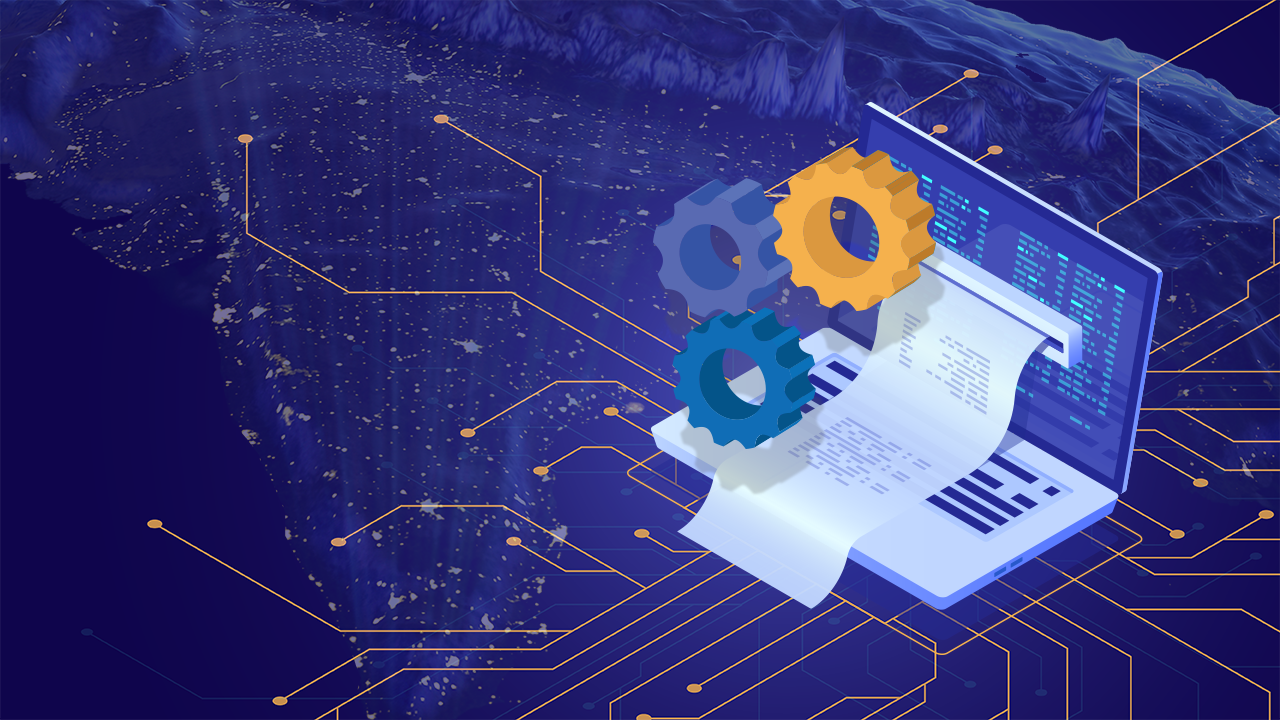In India, traditional invoice processing has been a bottleneck for businesses, marked by manual data entry, high error rates, and prolonged processing times. These inefficiencies hinder cash flow, compliance, and overall business agility.
However, recent advancements in technology and government policies are setting the stage for significant transformations in this area. The Indian government's push for e-invoicing for companies with a turnover exceeding Rs 5 crore is a pivotal step toward standardizing and automating invoice processes. This regulatory move aims to integrate invoice handling directly with the Goods and Services Tax (GST) system, thereby improving transparency and reducing fraud. The transition to e-invoicing is not just a compliance exercise but a step towards digital transformation, leveraging technology to streamline workflows and enhance data integrity.
The role of API integration
APIs play a crucial role by enabling different financial systems and software to communicate seamlessly. This integration manual tasks by doing:
- Data extraction: Using technologies like Optical Character Recognition (OCR), automation software can extract data from scanned invoice images directly into financial systems.
- Invoice matching and payments: Automated systems match invoices with purchase orders, flag discrepancies, and facilitate swift payment processing.
- Compliance and reporting: Automation ensures that invoices are processed in compliance with GST regulations, with automated tax return generation and filing.
Impact and benefits
The specific benefits of implementing API integration in invoice processing are manifold:
- Real-time processing: APIs facilitate real-time data exchange, which means that invoices can be processed and reconciled immediately upon receipt. This capability is particularly beneficial for improving cash flow management, allowing businesses to recognize revenue faster.
- Enhanced accuracy: APIs reduce the risk of human error by minimizing manual data entry, ensuring that financial records are accurate and reliable. This accuracy is critical for maintaining compliance with financial regulations and making informed business decisions.
- Better compliance: With APIs, businesses can ensure that their systems are always aligned with the latest regulatory requirements. For example, APIs can help automate the generation and submission of tax-related documents and ensure that all transactions comply with the Goods and Services Tax (GST) regulations in India.
These integrations not only streamline financial operations but also provide strategic advantages by enabling better financial planning and analysis. Businesses that leverage API integration in their invoice processing can achieve a higher degree of operational efficiency and financial integrity, positioning them well for growth and scalability in the competitive market landscape.
Future trends and predictions
Evolving technologies in invoice processing
As we look to the future, the landscape of API integration within invoice processing in India is set to undergo transformative changes. The rise of cloud-based platforms and the expansion of API economies are catalyzing the development of more sophisticated and interconnected financial ecosystems. These advancements are expected to enhance the speed and efficiency of processing capabilities dramatically, enabling deeper integration and smoother interactions between diverse financial systems and services.
Government initiatives enhancing technological adoption
The Indian government is playing a crucial role in fostering this technological evolution, particularly through initiatives aimed at digitizing financial operations. Programs like Digital India are designed to improve online infrastructure and expand internet connectivity, thus facilitating the broader adoption of tech-driven solutions in financial services, including advanced invoice processing systems. Additionally, efforts to refine regulatory frameworks and standards for electronic transactions are poised to bolster digital innovations such as robust e-invoicing systems, creating an environment that is increasingly conducive to technological advancements.
The impact of AI and ML
AI and ML are anticipated to influence the next phases of invoice processing automation significantly. These technologies are expected to refine current automation frameworks by introducing more intelligent and adaptive systems. AI and ML are equipped to analyze patterns, predict potential errors, and make real-time decisions that optimize the entire invoice management process. Potential applications include enhancing fraud detection mechanisms, improving regulatory compliance checks, and forecasting cash flow based on incoming invoices—capabilities that add a strategic dimension to financial management previously out of reach.
This forward-looking perspective suggests that the convergence of API integration, AI, and government-led digital initiatives will not only reshape invoice processing in India but also set new standards for the financial industry's operational efficiency and strategic management.








